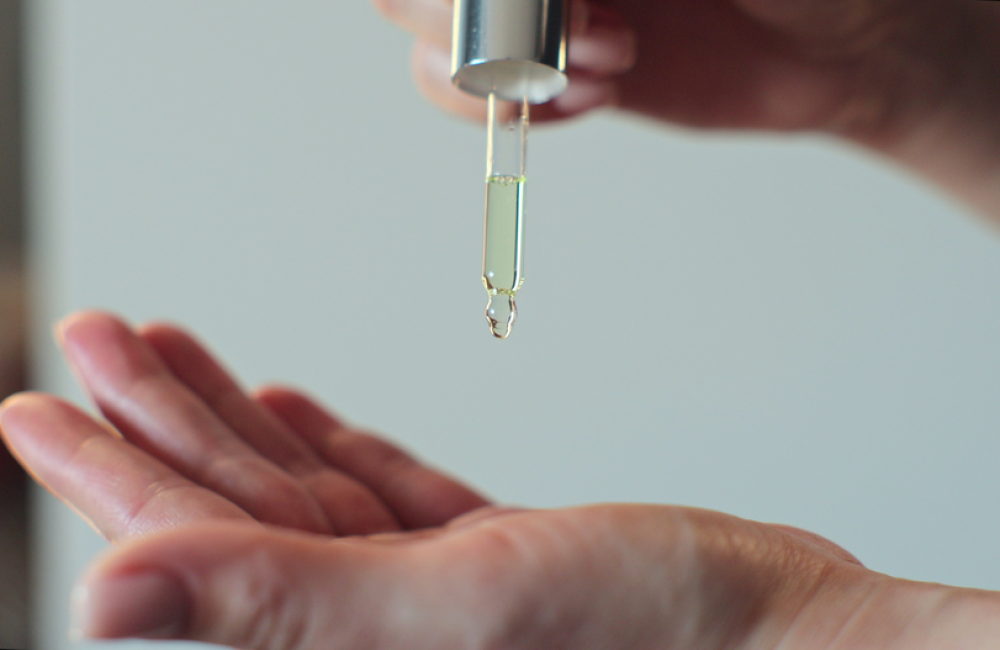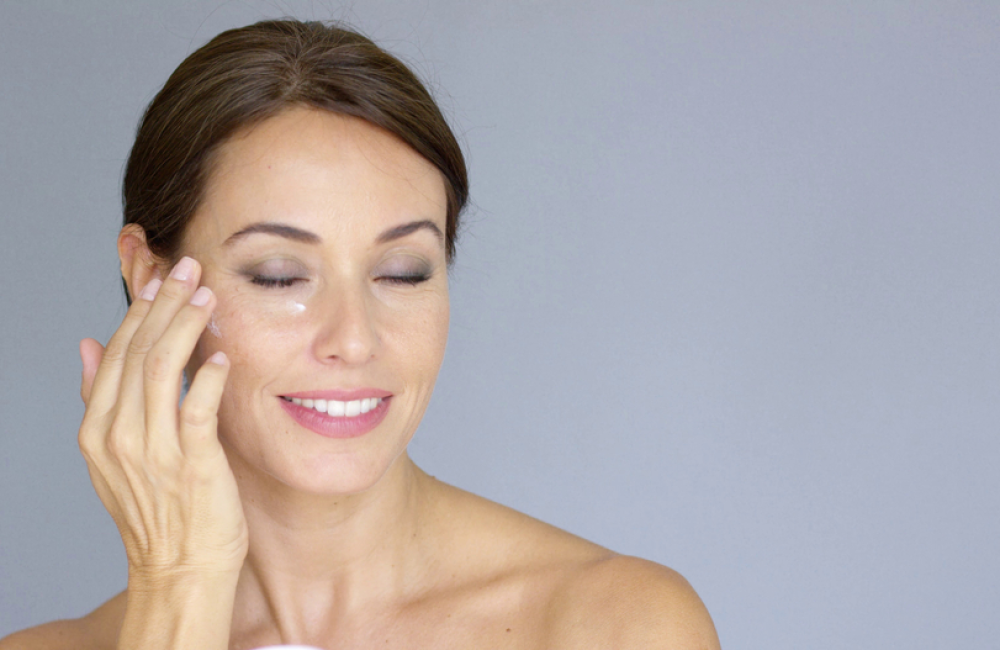Hyaluronic acid has become one of the most popular ingredients in the skincare world. It’s frequently found in moisturizers, serums, and facial masks for its remarkable ability to hydrate and smooth the skin.
But when it comes to pregnancy, many expectant mothers are cautious about the ingredients they use, concerned about the safety of their baby and their own health. So, you may be wondering, is hyaluronic acid safe during pregnancy?
The short answer is: Yes, hyaluronic acid is generally considered safe during pregnancy. However, this article will explain why it’s safe, what the benefits are, and what precautions to take when using it while expecting.
Also, we will discuss how hyaluronic acid works and why it has become such a popular choice for many women in their skincare routine during pregnancy.
What Is Hyaluronic Acid?

Hyaluronic acid is a naturally occurring substance in the human body, primarily found in connective tissues, skin, and eyes.
It plays a critical role in maintaining moisture levels, lubricating , and providing elasticity to the skin. One of the key functions of hyaluronic acid is its ability to retain moisture – it can hold up to 1,000 times its weight in water.
When used in skincare, hyaluronic acid is typically found in the form of a serum, moisturizer, or gel. Its primary benefit is its hydrating effect, making it a powerful tool for tackling dry or dehydrated skin.
It’s also known for improving the appearance of fine lines and wrinkles, as it can plump up the skin by drawing moisture from the environment and holding it there.
For pregnant women, changes in hormone levels can cause fluctuations in the skin’s moisture levels, making hydration even more important. This is where hyaluronic acid can be a important, providing relief to dry, irritated skin and helping maintain its elasticity.
Is Hyaluronic Acid Pregnancy Safe?
The Good News: Hyaluronic Acid Is Safe for Most Pregnant Women
Hyaluronic acid is widely considered safe for use during pregnancy. Because it is a substance naturally found in the human body, it is highly unlikely to pose any risks when applied topically.
In addition, hyaluronic acid molecules are too large to penetrate the skin deeply, meaning they don’t get absorbed into the bloodstream.
This makes them safe to use in skincare products during pregnancy, as they don’t directly affect the baby.
However, as with any new skincare ingredient, it’s important to check the formulation for any other additives or ingredients that could pose risks.
The ingredient itself is safe, but some products may contain fragrances, alcohol, or other preservatives that could cause skin irritation or allergies, especially during pregnancy when the skin can become more sensitive.
For more expert advice on pregnancy-safe skincare, you can visit sources such as American Pregnancy Association or WebMD.
Benefits of Hyaluronic Acid During Pregnancy

Hyaluronic acid offers multiple benefits for pregnant women who are dealing with changes in their skin. These benefits include hydration, soothing of irritated skin, and even helping to reduce the appearance of stretch marks. Here’s a deeper dive into how hyaluronic acid can benefit you during pregnancy.
1. Hydration for Dry Skin
Pregnancy often comes with fluctuating hormone levels, which can lead to skin changes.
Many expectant mothers experience dry, flaky skin, especially as they progress through the trimesters. The increased blood flow and changes in oil production can result in skin dehydration, which may cause irritation, redness, and discomfort.
Hyaluronic acid can help by delivering an intense moisture boost, keeping the skin hydrated and smooth. It draws moisture into the skin and locks it in, preventing it from evaporating. This makes it a great addition to any skincare routine for preventing and treating dryness.
2. Reduces the Appearance of Stretch Marks
Stretch marks are a common concern during pregnancy as the skin stretches to accommodate a growing baby.
While there’s no miracle cure to completely prevent stretch marks, hyaluronic acid can help by promoting skin elasticity and hydration. Proper hydration and improved elasticity can reduce the appearance of these marks.
Though studies specifically linking hyaluronic acid to the prevention of stretch marks are limited, using products containing hyaluronic acid can certainly help improve the overall appearance and feel of the skin, minimizing the risk of excessive scarring.
3. Calms Irritated Skin
Pregnancy hormones can trigger a number of skin issues, from acne to redness and irritation.
Hyaluronic acid can soothe inflammation, helping to calm irritated skin. By maintaining the skin’s moisture barrier, it can also help in reducing the risk of flare-ups caused by dryness, sensitivity, or hormonal imbalances.
4. Non-Toxic and Gentle
One of the biggest advantages of hyaluronic acid is its gentle nature.
Unlike other active ingredients, such as retinoids or salicylic acid, which are often advised against during pregnancy, hyaluronic acid is safe, non-toxic, and unlikely to cause harm to the baby.
It is often recommended by dermatologists for women with sensitive skin due to its soothing properties.
4. Non-Toxic and Gentle
One of the biggest advantages of hyaluronic acid is its gentle nature.
Unlike other active ingredients, such as retinoids or salicylic acid, which are often advised against during pregnancy, hyaluronic acid is safe, non-toxic, and unlikely to cause harm to the baby.
It is often recommended by dermatologists for women with sensitive skin due to its soothing properties.
Potential Risks of Hyaluronic Acid During Pregnancy
While hyaluronic acid itself is safe during pregnancy, there are some precautions and considerations to keep in mind:
Always Choose High-Quality Products
Not all skincare products containing hyaluronic acid are created equally. Some may contain harmful preservatives, fragrances, or alcohol that could irritate sensitive skin.
Make sure to choose products from reputable brands that are formulated for sensitive skin and free from harsh chemicals.
For example, look for products labeled as “non-comedogenic” (meaning they won’t clog pores) and those without strong fragrances. Always check the full list of ingredients to ensure that the product is pregnancy-safe.
It is highly recommended to use an Acne Ingredient Checker, to make sure the product you chose is safe for your skin type.
Patch-Test New Products
Pregnancy can make the skin more sensitive, so it’s a good idea to patch-test any new products before applying them to your face or body.
Simply apply a small amount of the product to an inconspicuous area (such as the inside of your wrist) and wait 24 hours to ensure there are no signs of irritation or an allergic reaction.
Pregnancy can make the skin more sensitive, so it’s a good idea to patch-test any new products before applying them to your face or body.
Simply apply a small amount of the product to an inconspicuous area (such as the inside of your wrist) and wait 24 hours to ensure there are no signs of irritation or an allergic reaction.
How to Incorporate Hyaluronic Acid into Your Skincare Routine

Hyaluronic acid is easy to add to your skincare regimen. Here are a few tips on how to use it effectively during pregnancy:
1. Start with a Cleanser
Start with a gentle, pregnancy-safe cleanser to remove impurities and make sure your skin is ready to absorb the hyaluronic acid. Look for a cleanser that is free from harsh chemicals or fragrances.
2. Apply a Hyaluronic Acid Serum
Serums are a great way to get a concentrated dose of hyaluronic acid. After cleansing, apply a few drops of hyaluronic acid serum directly to damp skin. This will help lock in moisture. Follow the instructions provided with your specific product.
3. Seal with a Moisturizer
After applying hyaluronic acid serum, seal in the hydration with a lightweight moisturizer. This helps to lock in moisture, ensuring the benefits of hyaluronic acid last throughout the day.
4. Don’t Forget Sunscreen
Pregnancy can increase skin sensitivity, especially to the sun. Be sure to follow your skincare routine with a pregnancy-safe sunscreen to protect your skin from UV rays.
Alternatives to Hyaluronic Acid During Pregnancy
While hyaluronic acid is an excellent choice for hydration, there are other safe and effective ingredients you can use during pregnancy:
- Glycerin: Like hyaluronic acid, glycerin is a humectant that draws moisture into the skin, making it a great alternative for hydrating products.
- Aloe Vera: Aloe vera is soothing and hydrating, often used to treat sunburns and other skin irritations.
- Coconut Oil: This natural oil is rich in fatty acids that can help moisturize dry skin, making it a great alternative during pregnancy.
FAQ
- Can I use hyaluronic acid while pregnant?
Yes, hyaluronic acid is considered safe for most pregnant women when applied topically. It is naturally found in the body and does not penetrate deeply into the skin, meaning it does not pose any direct risks to you or your baby.
- Does hyaluronic acid cause stretch marks?
While it won’t prevent stretch marks entirely, hyaluronic acid can help improve skin elasticity, which can reduce their appearance.
- Can I use hyaluronic acid on my face during pregnancy?
Yes, hyaluronic acid is a gentle and effective ingredient for maintaining hydration, making it safe for use on your face during pregnancy.
- Are there any risks to using hyaluronic acid while pregnant?
Hyaluronic acid itself is safe; however, be cautious about other additives in the product. Always opt for high-quality, fragrance-free, and non-comedogenic products to avoid irritation.
- How often should I use hyaluronic acid during pregnancy?
You can use hyaluronic acid daily, typically once or twice a day, depending on your skin’s needs.
Conclusion: Is Hyaluronic Acid Safe During Pregnancy?
Hyaluronic acid is not only safe to use during pregnancy, but it also provides significant skincare benefits.
Whether you’re dealing with dry skin, stretch marks, or irritation, hyaluronic acid can hydrate, soothe, and protect your skin.
By choosing high-quality products and using them as part of a balanced skincare routine, you can safely enjoy the benefits of this powerhouse ingredient.
P.S: Please note that some of the links on this site are affiliate links. This means that if you purchase a product through one of these links, we may earn a commission at no additional cost to you. Thank you for your support!







